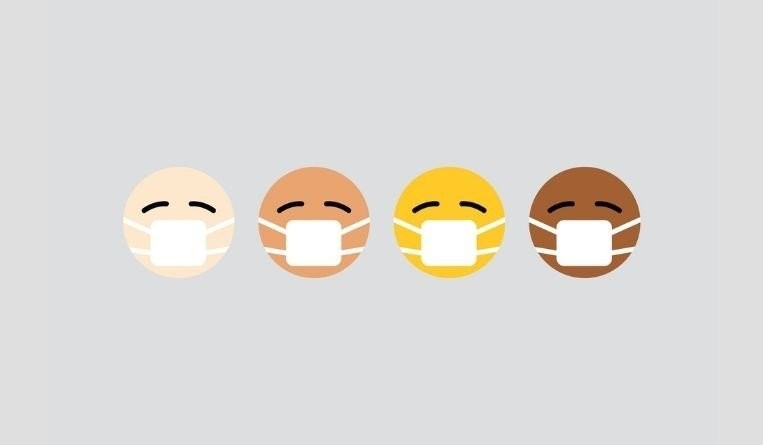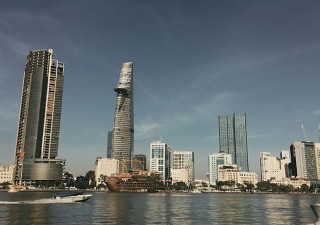Indian courts and IP offices adapt to Covid-19’s ‘new normal’
31 October 2020

Businesses have been forced to adapt to the ‘new normal’ since the outbreak of Covid-19. Ranjan Narula and Abhishek Nangia say that India’s courts and IP offices have adapted as well, and are providing support to India’s drive to be an attractive business destination.
The impact of Covid-19 is being felt across all facets of life. The Covid-19 pandemic has affected communities, businesses, financial markets and the global economy. Countries worldwide have introduced numerous measures to contain the increasing spread of the novel coronavirus, and axiomatically disrupting the supply chain, altering consumer behavior and buying habits.
The outbreak of Covid 19 has brought new challenges for brand owners, not only from managing consumer expectations but also in securing their IP rights as they launch new products to cater to consumer needs in the “new normal,” where social distancing and contactless delivery are the accepted norms. A few of the trends and changes observed in the past six months in India are listed below:
- Brands that operate in sectors that are heavily regulated by the government (e.g., alcohol, tobacco and medicines) will see an easing in terms of distribution and delivery of goods, taking into account the “new normal.” State governments are considering framing rules for home delivery of alcoholic drinks and possibly cigarettes. In particular, the crowds at designated liquor shops post easing of stay-at-home orders are driving new thinking and technology adoption in these areas.
- Many brands in food and clothing are rolling out their websites and getting involved in last-mile delivery, while they were earlier selling through brick and mortar stores and, to an extent, through an e-commerce portal. The brands will continue to use these channels; at the same time, they realize that consumer experience needs to be paid more attention to protect brand sanctity and retain loyalty.
- Large format offline stores in India, such as Future Group's (Easy Day and Big Bazaar), Spencer’s Retail, Metro Cash & Carry and Walmart’s Best Price stores have stepped up to serve customers online. The stores are building an omni channel model (taking orders on the phone, WhatsApp and other apps) to deliver groceries and goods.
- Buying local brands is picking up rhythm driven by a few homegrown brands more in the herbal and natural product space. The trend may also be a reflection of economies looking inward across the world post-Covid 19. (Prime Minister Narendra Modi has said that the mindset of Indians should be to be “vocal for local” to ensure the country’s self-reliance.)
- Big format stores and e-commerce portals are increasingly pushing their private label brands post-Covid19 as consumers look for a bargain in response to a drop in income.
- The health sector is attracting more investment with new healthcare products being launched to boost immunity, further increased investment in technology platforms with telemedicine guidelines rolled out, and the government permitting online pharmacies to be set up.
The IP office and courts have stepped up to the challenge and have been actively working virtually during these challenging times in India.
Trademark office
The five trademark offices (catering to five regions across the country) were closed down briefly due to the sudden lockdown announced by the Indian government in March 2020. With the lifting of lockdown in a phased manner, the staff at the trademark office has been working both from home and the office on a rotational basis. During this phase, the trademark office has taken several steps to maintain its pace of working, such as:
- Regular publication of the Trademarks Journal;
- Examination of trademark applications;
- Service of opposition pleadings via email and issued formal orders;
- Commenced prosecution hearings through video conferencing; and
- Issued registration certificates in cases where no opposition was filed.
As per the data available on the website of the trademark office, 224,308 applications were examined (including examination of national applications and international registrations designating India) between April 1, 2020, and September 30, 2020. The data is tabulated below:
|
Applications examined |
224,308 |
|
Applications published in the Journal |
165,644 |
|
Registration certificates issued |
99,293 |
During the past six months, the trademark office’s online portal has been working seamlessly, allowing IP owners to file applications and oppositions and to upload documents. The trademark office, from October 2020, is now open for limited physical interaction. The applicant, if required, can meet with officials with a prior appointment.
Patent office
The four patent offices have also been equally active during this phase, working at its normal pace and taking up hearings through video conferencing. The online portal of the patent office has been up and running during this phase allowing parties to file patent applications and to upload related documents. Data of the applications examined and granted between April 1, 2020, and September 30, 2020, is summarized by jurisdiction below:
| Patent | Number | Subject wise distribution | |||||||||||||||||||||||||
| Applications examined | 33,170 |
|
|||||||||||||||||||||||||
| Applications granted | 12,820 |
|
Copyright office
The copyright office has been actively examining applications and issuing registration certificates. The data of applications filed and registrations granted between April 1, 2020, and September 30, 2020, is summarized below:
|
Applications filed |
8,991 |
|
Registrations granted |
6,429 |
Intellectual Property Appellate Board
The Intellectual Property Appellate Board (IPAB) took steps in May 2020 to start functioning by listing urgent cases for hearing through video conferencing. The IPAB adopted a collaborative approach seeking views of the stakeholders on filing new cases and appointment of hearings through video conferencing. The IPAB had, during the past three months, issued various circulars/guidelines to facilitate the online filing of documents and initially dispensed with the requirement of filing physical petitions and documents. The IPAB has been regularly hearing urgent cases through video conferencing since May, and orders passed are promptly uploaded on its website at www.ipab.gov.in. The IPAB heard more than 300 cases virtually during this phase and passed numerous orders, including cases which had been pending for several years. However, with the gradual opening of services, the physical filing of documents has again been made mandatory.
Delhi High Court
The Delhi High Court, which is a preferred forum for IP litigation for stakeholders, has been actively functioning during these challenging times. The court has taken numerous initiatives, such as:
- Hearing urgent cases through video conferencing. The hearings are being conducted on the Cisco Webex platform, and both parties are provided a web link and password to join the hearing. The orders passed are promptly uploaded on the court's website within 24-48 hours.
- The court has been issuing circulars from time to time to communicate with the public and litigants regarding the court's working, roster of judges, recording of evidence online, procedural filing guidelines, etc. The court has been promptly providing clarity to resolve stakeholders’ issues in these challenging times, taking into account that virtual hearings are new to lawyers and litigants.
- On June 1, 2020, the court issued a detailed High Court of Delhi Rules for Video Conferencing for Courts 2020, containing the general procedure for conducting such hearings. The Rules are applicable only to the Delhi High Court and require advance service of suit papers/paper book on the defendant prior to bringing a new court action. By rotation, the court has also held physical hearings to accommodate those parties which are not comfortable with virtual hearings. In the initial phase, considering the exceptional circumstances due to the pandemic, as everyone was working remotely, the court exempted the filing of case documents in the physical form until the resumption of regular court hearings. The exemption has now been modified, with court directing that from September, documents must be filed physically, affidavits must be attested by notary and court fees must be paid at the time of filing.
- The recent circular issued by the Delhi High Court also provides for cross-examination procedure from October 12, 2020, in cases where the court has ordered the time-bound recording of evidence. The recording of evidence can be by physical mode or by video conferencing.
- The mediation cell of the Delhi High Court, in order to encourage parties to amicably and expeditiously resolve their conflicts, issued a notification in June 2020 encouraging litigants to hold mediation sessions through video conferencing in a) pending cases, b) new cases referred by the Court with the consent of parties and c) requests filed by the party for mediation before instituting the action (pre-litigation cases). This process has been working well and resulting in the resolution of the cases. The settlement agreement in such cases is being drawn by seeking consent of the parties to the terms of the agreement.
- The data compiled from the Delhi High Court website shows that during the period April 1, 2020, to September, 30, 2020, 295 commercial suits (which include IP cases) were instituted, and 92 cases were finally decided and disposed of. The court, during this phase, has encouraged parties to resolve the conflict expeditiously.
IP cases during Covid-19
Opportunist counterfeiters taking advantage of the pandemic launched sales of facemasks, medicine, sanitizers and medical equipment bearing names identical or confusingly similar to brand names. The courts were quick to pass injunction orders and appointed court commissioners in some cases to search and seize the counterfeit goods. Brief details of some of the interesting pharma cases handled by us during this phase are as follows:
- Dr. Reddy Laboratories Limited v. Martin and Brown Bio-Sciences [CS(COMM) 244/2020]. Trademark infringement, passing off and damages suit brought by Dr. Reddy’s against Martin & Brown from using the identical mark NISE. The lawsuit resulted in the court passing a final order/decree on the first date of hearing. The defendant agreed to cease use, and the court awarded damages of Rs.200,000 (US$2,725). The defendant also handed over the goods for destruction.
- Abbott Healthcare Private Limited v. VINSAC Pharma [CS(COMM) 336/2020]. Abbott, during this phase, brought several actions to protect its rights in the registered mark Limcee used for Vitamin C tablets. In this case, the defendant was using a deceptively similar mark Limeecee for identical goods. The other cases brought by Abbott were against marks such as Limosee, Lim-C, Licensee, Licmee and Lin-C. The court granted the ex parte injunction and appointed the local commissioner in several of such cases.
- Fujifilm Toyama Chemical Co. Ltd v. PV Pharma Healthcare Pvt. Ltd. [CS(COMM)302/2020]. Fujifilm filed a quia timet suit to restrain the defendant from launching a medicinal product containing identical formulation/salt to its flu drug Favipiravir (marketed as Avigan) under the deceptively similar mark Avagan to treat Covid-19 patients. Fujifilm was a prior adopter, has been the registered proprietor of the Avigan mark since 2009 and has used the mark since 2014. The case was settled within two months of filing with the defendant filing an affidavit/undertaking agreeing not to launch Avagan.
Businesses not only in India but also globally have changed in recent months. Their survival is dependent on wisely choosing resources and putting them to their optimal use. The Indian economy may slow down in the short run, but no one denies the massive potential for brand owners that the sizeable Indian consumer market has to offer. The courts and IP offices, with their approach to respect and protect IP, are positively supporting India’s drive to be an attractive business destination.









